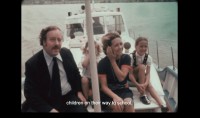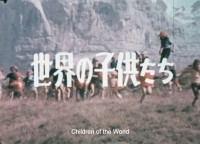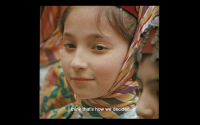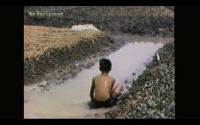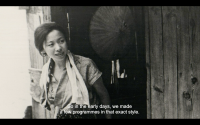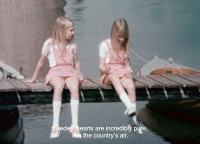Wake up! Children of the world
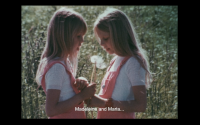
Wake up! – Children of the World, 2021
Video, 60 min.
Original film; Children of the World, 1972.
16 mm, 25 min.
The children’s programme Children of the World was on broadcasted between 1972–1981 in Japan. The program followed hundreds of families with children from all around the world. There was also an episode about Ingela Johansson's family and her sisters. The children's program is a mix between documentary film and fairytale, which is enforced by the fact that the narrator's voice is well recognized in Japan as belonging to the Moomin character.
The TV-series was produced by one of Japan's largest television companies and was one of the first major Japanese depictions abroad that showed ordinary families in a world undergoing globalization. The script and direction of the various children's programmes follow the same structure regardless of country and context. The Swedish episode based on the Johansson family was about staging an idea of the Swedish society from a Japanese perspective at this time. Throughout the program there is an anthropological view that is based on children's perspective, where you get to follow children in different everyday situations, in school and during their spare time. It is a depiction of family life in the 70´s. The program shows reflections of social justice and welfare issues, something that is not common in today's children's programmes.
Johansson has complied her research on the children's program Children of the World in a film Wake up! – Children of the World (2021).
The film is based on material filmed in 2009 in Japan. In the film we meet filmmakers from the production company TBS Vision. During her journey in Japan, Johansson uses the Swedish episode of Children of the World (1972) as a kind of social object, a meeting place, where people in her vicinity help her to decode the children's programme's storyline. Gradually, the plot unfolds about the 1970´s Japanese welfare structure and dreams of a better life. The script and the plot paint an excessively idealistic image of Sweden. However, what emerges from the TV-series, is a sense of hope towards the future and a society in transformation passed on to the children.
